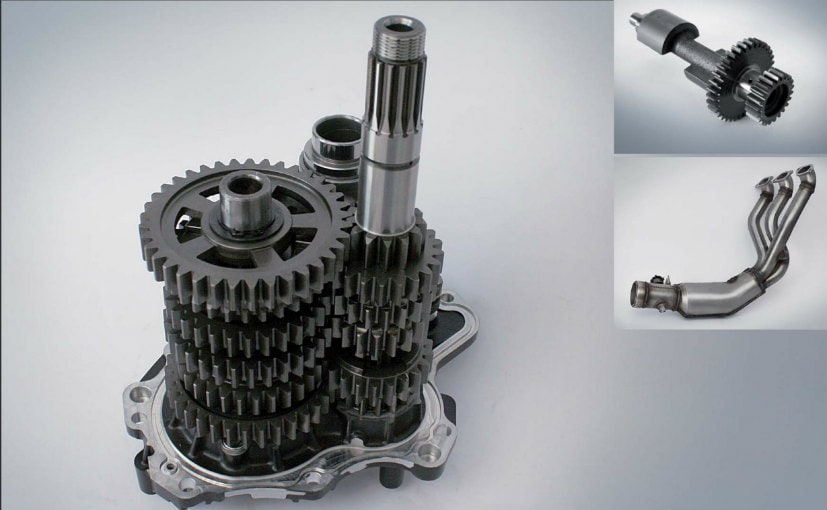The coronavirus crisis has brought automobile manufacturing and indeed the global industry to its knees. But it could prove to be a massive opportunity for India's $ 57 bn auto component industry. And that is because there is a bit of a backlash against China and its supplier industry will also be hit as a result. This is happening the word over, and indeed in India too. Even Prime Minister, Narendra Modi has called on industry to see what can be made here, rather than imported from China. The ongoing COVID-19 situation the world over has begun to abate and some countries have begun to relax restrictions on manufacturing. And while most have stocks to begin making new cars and bikes in the short term, long term supplies could be sought through new contracts. Nearly 30 per cent of the auto components used by auto manufacturers in India are imported. China accounts for 25 per cent of these imports. And that is a sizeable opportunity that clearly goes beyond just Chinese imports.

Nearly 30 per cent of the auto components used by auto manufacturers in India are imported. China accounts for 25 per cent of these imports
Deepak Jain who heads up automotive lighting major Lumax, is also the President of ACMA or the Automotive Component Makers Association of India. He told carandbike, " India continues to be a net importer of auto components, but fortunately the rate of growth of exports is higher than imports. The component industry in India exports 25 per cent of its production. With COVID-19, economies across the world realise that they cannot depend solely on China for all their sourcing and they need an alternative base to be risk proof. If India plays its cards well, then we have all the ingredients to be the next manufacturing factory of the world." Countries like India, Taiwan or Indonesia stand to benefit as global OEMs (original equipment manufacturers) reassess their dependence or even entire business in China.

The component industry in India exports 25 per cent of its production
A report by automobile startup Zekardo says auto makers operating in India will look at forming new long-term supply contracts with suppliers in India - but will also look overseas (outside of China), therefore putting pressure on local manufacturers. Arvind Goel, MD & CEO, Tata AutoComp Systems Ltd responded to carandbike by saying, "In the auto sector, India has a huge advantage as most global OEMs are present in India. And hence are aware of the quality and technology standards required by the Global OEMs. Today Indian auto components quality is accepted globally at par with China. Given this, India is well poised to take advantage of this emerging sentiment however, this would be a very long drawn process." The key opportunity then is for local suppliers to move up the value chain while bettering quality standards, focussing on cost competitiveness to be able to take advantage of the situation.

The COVID-19 crisis presents a huge opportunity for the Indian automotive components manufacturers
But none of this can happen without government intervention, as policy will play a crucial role in realising this target. ACMA recommends a two-pronged approach. Firstly, making exports of components grow four times. Deepak Jain says, "Once again, we need to make a strong case for giving significant incentives to exports so that they are globally price competitive. Our exports lose out to competitors primarily because of huge cost of capital, logistics and energy." The good news is that fresh investments may not be needed at as large a scale as would have been the case I the industry had been booming the last few months. Goel tells us that typically, "Investments are required either to increase the production capacity or to enhance the technology. (But) FY'20 saw the Indian auto industry shrink, and even FY'21 is projected to witness drops across all segments. Hence it already has significant excess capacity to cater to export demand. As far as investment in technology is concerned, it varies from component to component."

ACMA is advocating measures on boosting the Indian component industry to the government
Second and perhaps more crucial and immediate would be to attract those looking for options to China. ACMA believes they must be given 'a red carpet'. This includes financial incentives, creating special zones, relaxing some labour laws, and speeding up the ease of doing business. Jain adds, "This could be a zone-based approach as we could create islands of excellence. Some subjects are politically sensitive and it may not be feasible to do things pan-India." According to advisory firm Grant Thornton, there should be a flat 10 per cent tax incentive for 3 years for new investments exceeding $ 300 mn, or lower tax slabs for companies attracting investments beyond a certain threshold of turnover.
Saket Mehra, Partner (Automotive Advisory) at Grant Thornton goes further to say, "Apart from fiscal incentives, industry specific Production Linked Incentives (PLI), monetary policy intervention, the recent TLTRO 1.0 and TLTRO 2.0 announcements for investment in corporate bonds, special refinancing schemes to umbrella organizations coupled with open market purchases of government bonds etc. provides enough avenues for companies to access liquidity to expand and invest in manufacturing." ACMA says it has been advocating these measures to the government. So the ball is now in the court of the finance and heavy industries ministries.
from CarandBike - Latest News https://ift.tt/2zeXh0M




0 Comments